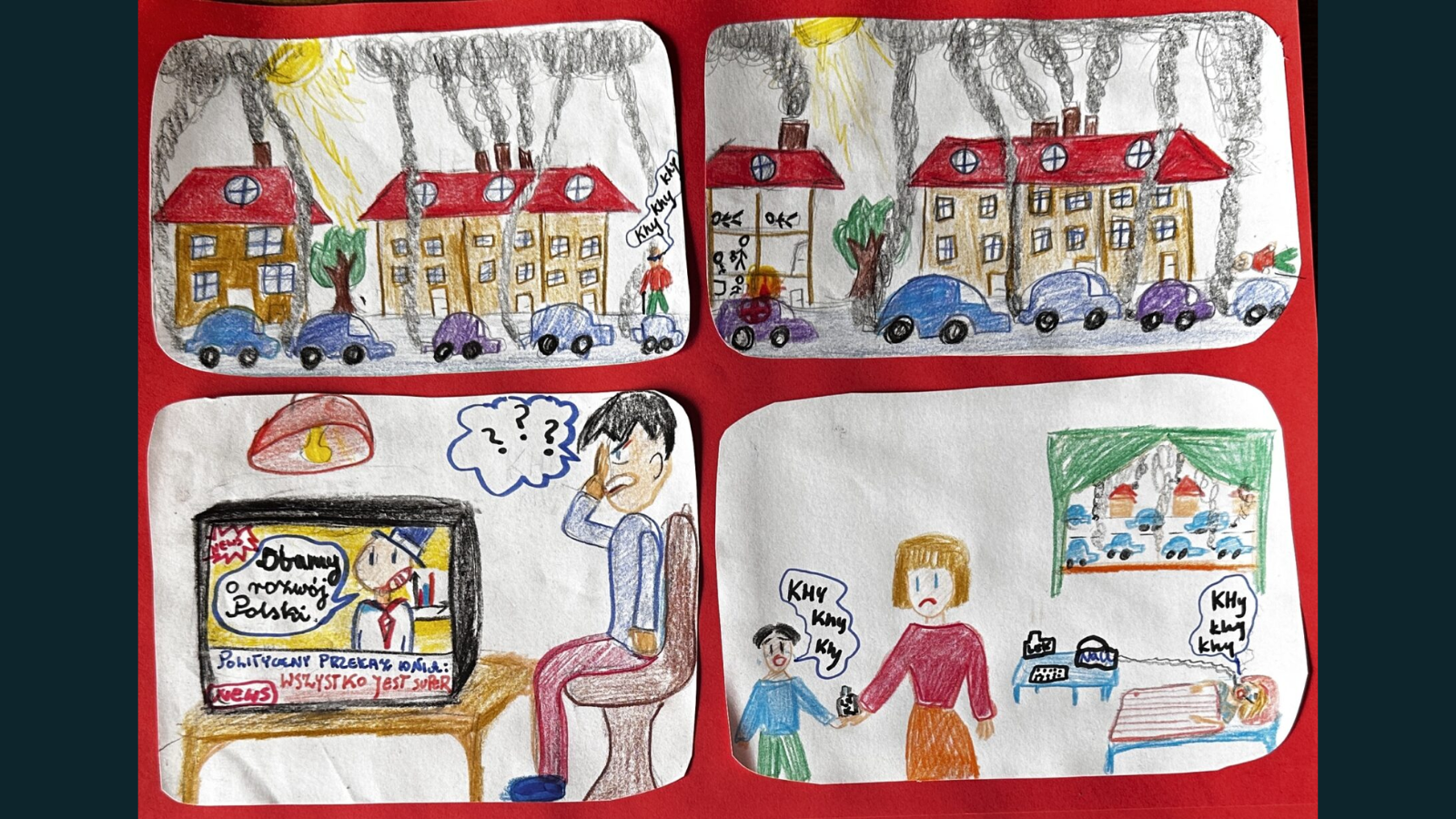As EU member states, regional and local authorities prepare to implement the revised Ambient Air Quality Directive (AAQD), this briefing by the Health and Environment Alliance (HEAL) argues that decision-makers and authorities should pay particular attention to addressing socio-economic inequalities in their clean air efforts. The swift transposition and implementation of the new rules, with strengthened administrative collaboration and the full utilisation of financial support schemes, promise significant progress towards cleaner air across Europe. Improved air quality will be beneficial to everyone and contribute to preventing health inequalities for those living in socioeconomically disadvantaged areas.
The Health and Environment Alliance (HEAL), the European Public Health Alliance (EPHA), the European Federation of Asthma and Airways Diseases Patients Association (EFA), representing 100+ health organisations and thousands of health professionals and experts, as well as asthma, COPD and cancer patients, voice their grave concern over the current questioning of the science on the health effects of air pollution and the attempts to weaken air quality standards.
Together with environmental, transport and legal civil society organisations, health groups are urging the German government in an open letter to refrain from any attempts to weaken air standards and instead show leadership on improving air quality in Germany, to protect people’s health and foster sustainable cities with a high quality of life.
The current debate has been ignited by an absolute minority group of 100 German lung doctors and picked up by conservative politicians from Germany, calling for a review of the current EU air quality standards. The background for this debate are the bans for diesel cars in certain German cities, as a result of years of failure to improve air quality in urban areas.
Following the claims about flawed science by the lung doctors, at least nine statements by international and German health professional associations, with clarifications on the science and in support of air quality standards and health protection, have been published, including:
Forum of International Respiratory Societies FIRS: statement here
FIRS is an organization comprised of the world’s leading international respiratory societies working together to improve lung health: American College of Chest Physicians (CHEST), American Thoracic Society (ATS), Asian Pacific Society of Respirology (APSR), Asociación Latino Americana De Tórax (ALAT), European Respiratory Society (ERS), International Union Against Tuberculosis and Lung Diseases (The Union), Pan African Thoracic Society (PATS), Global Initiative for Asthma (GINA), and the Global Initiative for Chronic Obstructive Lung Disease (GOLD). The memberships of these organizations exceed 70,000 globally. Members are mostly pneumologists, many of whom are environmental health specialists and epidemiologists.
ISEE and ERS statement on air pollution and health here
German Society of Pulmonology: Position on air pollution and health, Dec 2018 (this society represents approx. 4000 members):
Statement by the German Society for paediatric pulmonology here
Joint Statement by German Society for Epidemiology, German Society for medical IT, biometrics and epidemiology, German Society for Public Health, German Society for social medicine and prevention here
FAQ by the German Environment Agency here
Investigations have also revealed that a co-author of the minority statement have conflicts of interest, as he worked for the German automotive industry before, and that a second co-author is an engineer, not a lung doctor
World Health Organization documents:
Ten threats to global health in 2019
WHO Review of Evidence on health aspects of air pollution: REVIHAAP project
UN General Assembly : 2018 Political Declaration on Non-communicable disease
Anne Stauffer, HEAL Director for Strategy and Campaigns comments:
“The current questioning of air pollution science and of health protection standards has no scientific basis whatsoever. WHO and thousands of peer-reviewed studies confirm the harm done to our health and the need to act. The most recent WHO review showed that health effects can already occur at lower concentrations than previously thought, and that the range of impacts is larger. Air pollution is a major risk factor for chronic, costly, diseases including heart and lung disease, as well as cancer, affecting large parts of the population. New studies have also found a link to diabetes, obesity and Alzheimer’s.
The attempts by certain politicians to use the claims by a small minority, with no expertise in epidemiological science, as an argument to weaken EU air quality standards is absolutely deplorable. EU air quality standards are essential to protect our health.
With the goal of preventing disease and harm especially to those who are most vulnerable, including children, asthma patients, the elderly, and those economically disadvantaged, EU standards should actually be made stricter, rather than weaker.”
Oliver Wendenkampf, Project coordinator on healthy transport adds:
“Rather than questioning air quality standards and the science, policy-makers should finally engage in conversations about the most promising measures to achieve healthy mobility in cities. Sustainable modes of transport, with priority on walking and cycling and free public transportation (with renewable energy) are a win-win for our health, air quality and also help to tackle climate change.
What is urgently needed are incentives and a priority on reducing pollution, as recommended by the German Society of Pulmonology. HEAL invites health professionals to engage in transport and mobility deliberations, in their city, region, country and at EU level.”
HEAL documents:
The first ten years of the EU ambient air quality directive
Unmask my city – health professionals led initiative for clean air in cities by 2030



